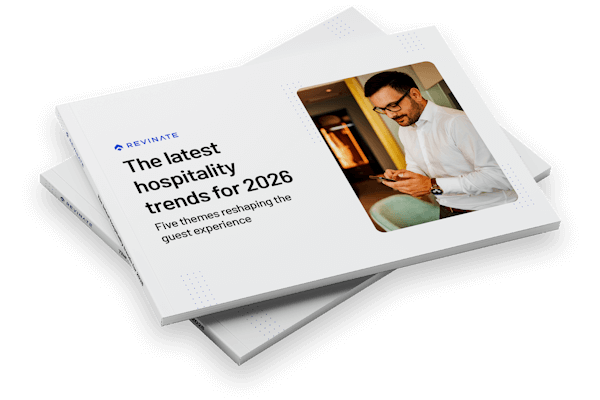The Importance of Review Responses
The Importance of Review Responses
Back in 2012, TripAdvisor conducted a consumer study to illustrate the power of hotel reviews and management responses. We shared the results many times in speeches, workshops and on our blog because it proved to the skeptics that putting the time into a reviews program and building a culture around guest feedback paid off.
TripAdvisor hasn’t updated the study since its original release so we wanted to see if anything has changed in the last six years. We recently conducted our own 10 questions survey of 364 international travel consumers to understand their travel booking habits. It turns out both online reviews and hotelier responses are as important as ever.
Reliance on Reviews: focus on the right channels
Not surprisingly, 97% of people read online reviews before booking a hotel room and 95% of people say that online reviews influence their booking decisions. However, only 59% of people say they will book a hotel ONLY after reading online reviews. We attribute this discrepancy to the power of other factors, such as word of mouth recommendations and travelers staying at the host hotel for conferences and event.
When it comes to influence, TripAdvisor and Google are cited as the websites where hotel research is most likely to be conducted. The fact that OTAs are not in the top two is great news for hotels because it means that there is a strong chance of capturing the direct booking, with the right advertising strategy in place. For example, we recently published an article about why hotels should invest in Google Hotel Ads. In that article we say, “For hoteliers worried about this trend (rise of OTAs) and looking to drive direct bookings, Google Hotel Ads provides a great opportunity to take advantage of search traffic and get a leg up on OTAs.”
To understand the research process that travelers go through, we asked, ‘Before booking a hotel, how many hotels do you look at/research, on average?’ 57% of people look at 3 to 5 hotels. 28% look at 6 to 10 hotels and 9% of people look at more than ten hotels. For this reason, it’s critical for hoteliers to ensure that they are well positioned to compete with the other hotels in their market across these influential sites. We advise hotels to ensure listings are up to date, have great photography and, of course, management responses to reviews.
‘Before booking a hotel, how many hotels do you look at/research, on average?’

Although TripAdvisor is the top source of travel research, it is surprising to see that its proprietary Popularity Index isn’t as influential as one would think, especially considering the amount of work hoteliers put into worrying about their ranking. When asked, How much does the TripAdvisor ranking factors into your decision to book (or not book) a hotel?’, only 15% of respondents selected 9 or 10. Clearly it’s important to travelers, but not the most important factor.
Price Versus Reputation: the importance of review ratings
We wanted to answer the age-old question, what is more important, price or reputation? We asked, ‘Are you more likely to book a room with a better online rating even if it means paying a higher price?’ 82% of people responded that they would pay a higher price for a hotel with a better online rating. This data point corroborates a 2013 Cornell Study that showed a definitive link between reputation and revenue, stating: “Typically, as a hotel’s price per room increases its occupancy rates tend to go down. However, if a property can increase its review score by one point (on a five-point scale) on OTA channels, it could increase its prices by about 11% and still maintain the same occupancy rates. The positive effect of an increased user review score can offset the negative occupancy impact that’s normally attributed to higher prices.”
Management Responses: they matter more than ever!
We have long argued that the management response to an online review is as important, or more important, than the review itself. We have trained thousands of hotels on best practices for management responses. So how important are responses to travelers? First, we asked whether travelers expect to see a response from the hotel if they write a negative review. More than half of respondents, 54%, said ‘yes’.
Why? Imagine you are a guest and you had a bad experience at a hotel so you wrote a review expecting to receive a response. You’re already disappointed and you took the time to let the hotel know why. Days go by and no one at the hotel takes the time to respond. Your disappointment likely grows and you’re now likely to become a detractor, someone that will go out of your way to share negative feedback to friends and colleagues.
‘If you do receive a response to your negative review, would that change your feelings about your overall experience?’

Responding to negative reviews has the power to undo the damage of a bad experience. 12% of people say that if they receive a response to a negative review, it would change their feelings about their overall experience. 82% say, ‘Maybe. It depends on the response.’ In other words, travelers are looking to hotels to respond thoughtfully and empathetically. A cut and paste response won’t cut it. How you craft your responses is critical and if you’re not winning back your negative reviewers, you’re certainly not convincing prospective guests to stay with you.
The good news is that we have studied the fine art of management responses and have written extensively on the topic. Search our blog for tips and trips or reach out to us for help. We would love to share what we have learned.
This site is protected by reCAPTCHA and the Google Privacy Policy and Terms of Service apply. View our Terms & Conditions here. *Required fields.






